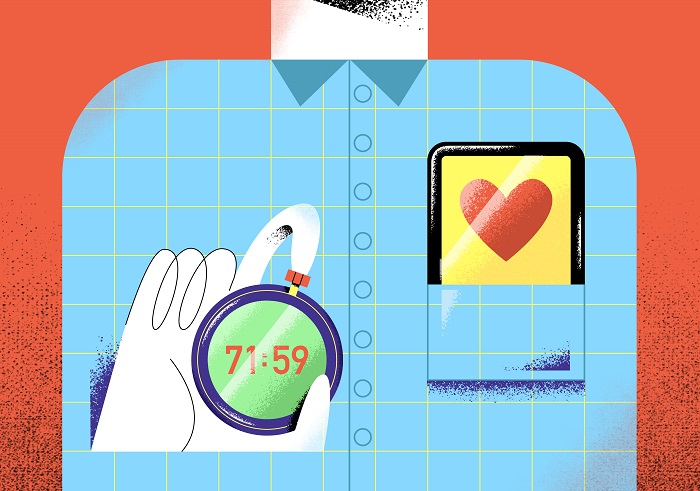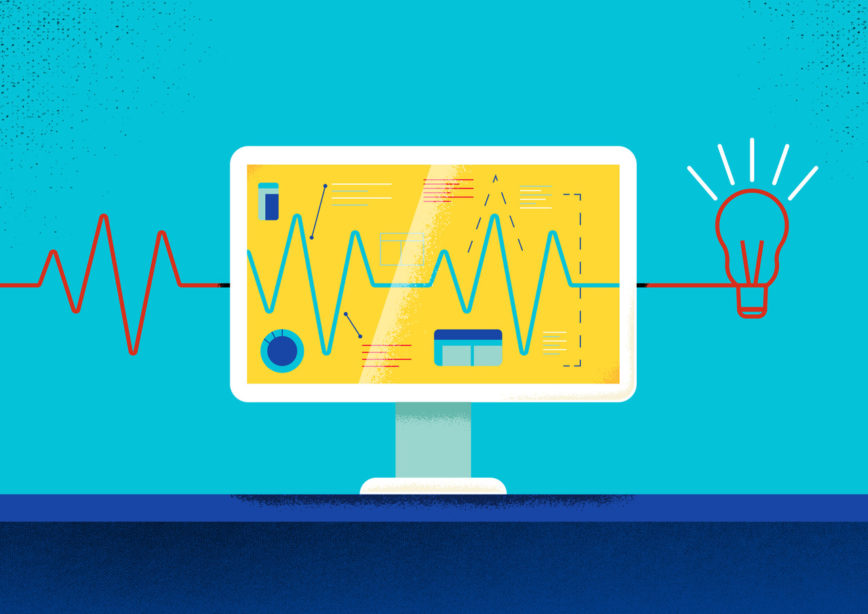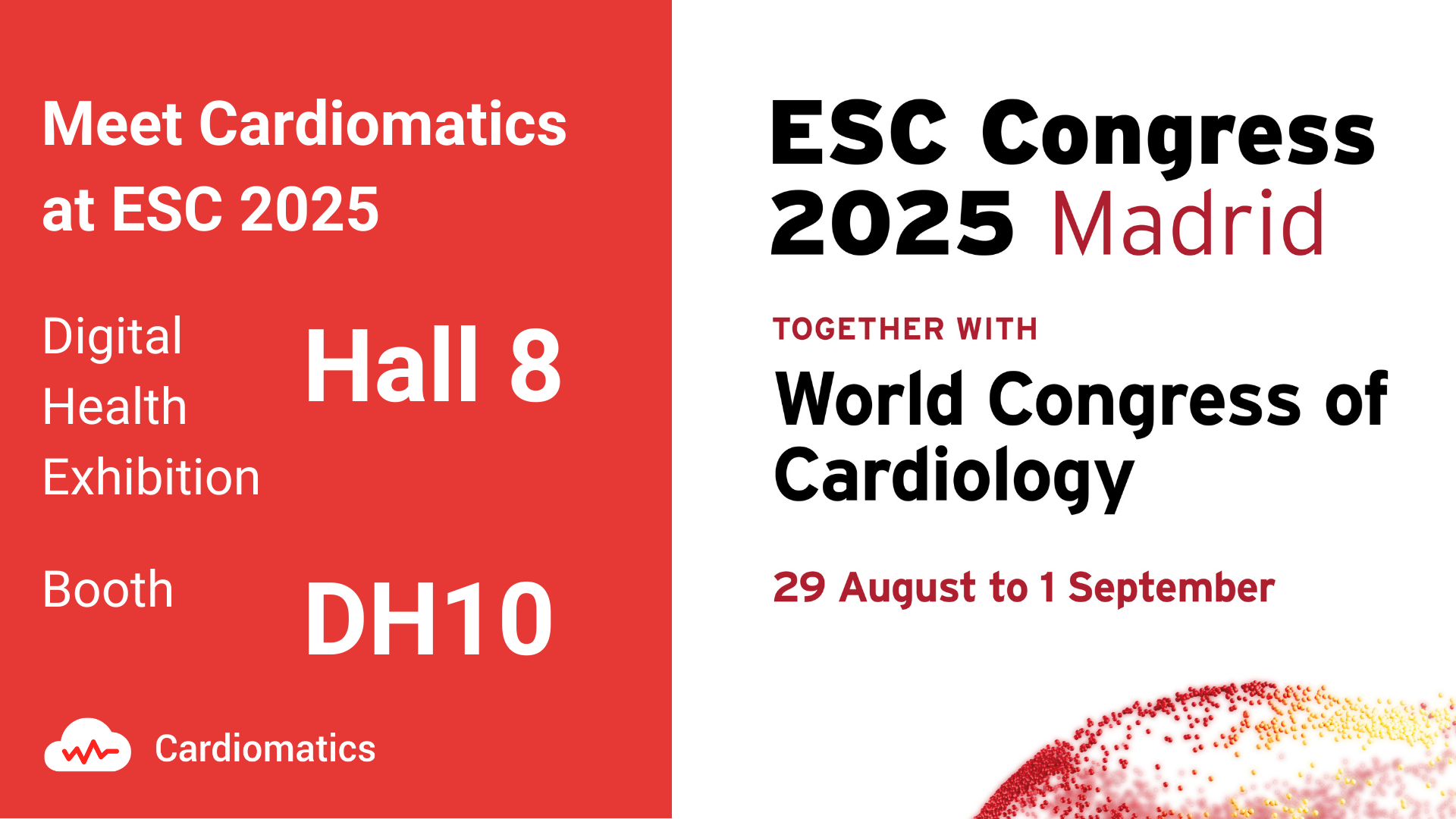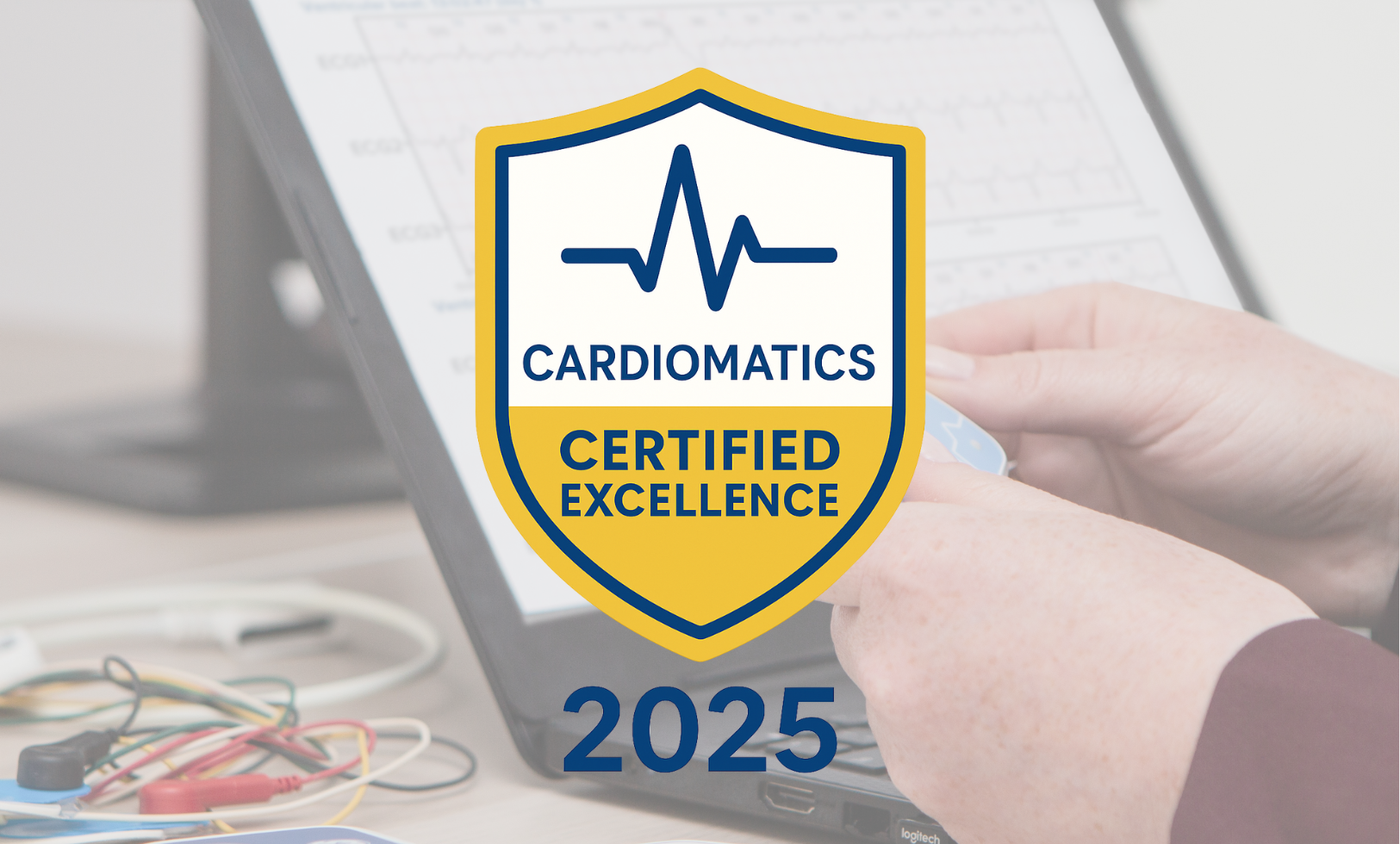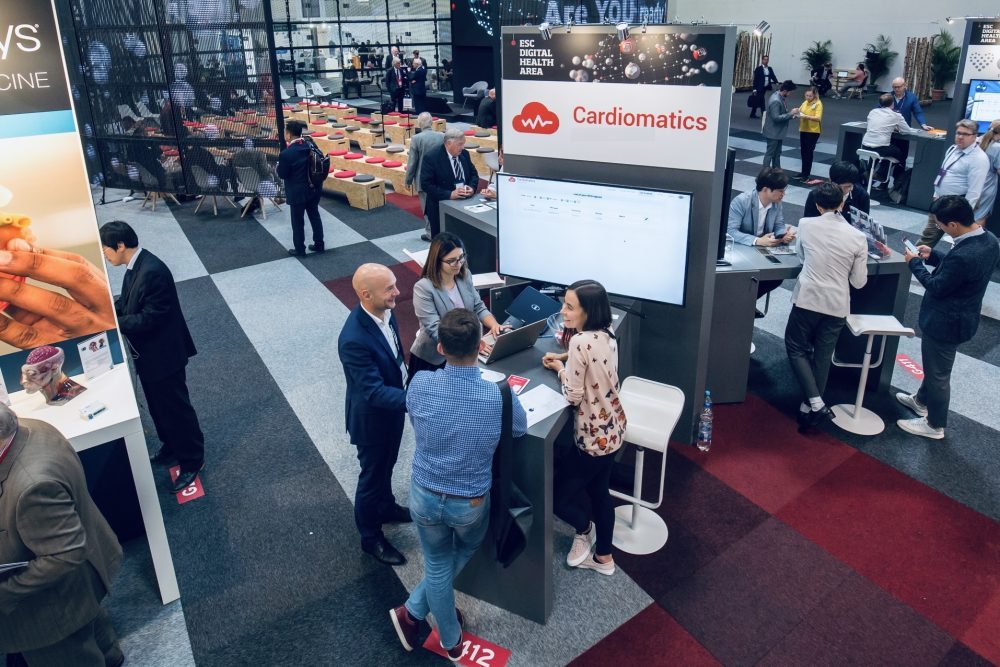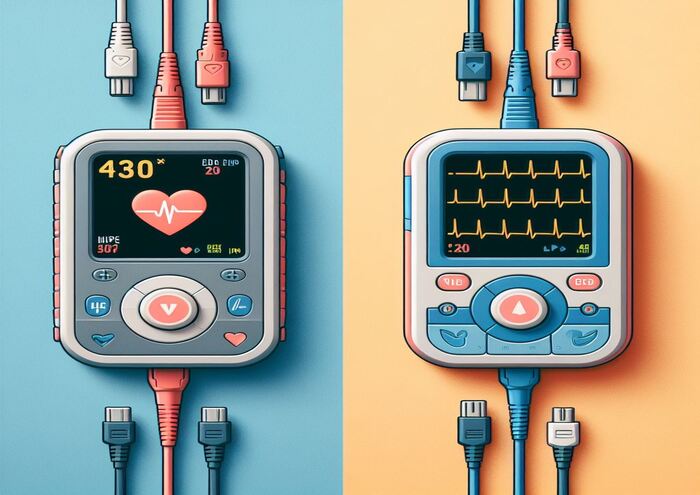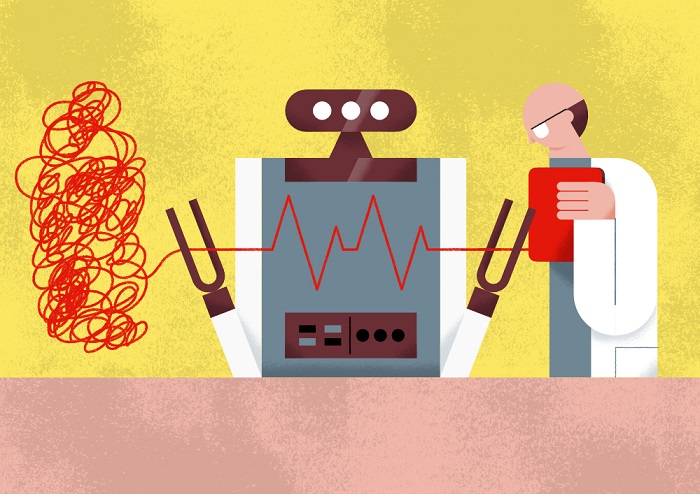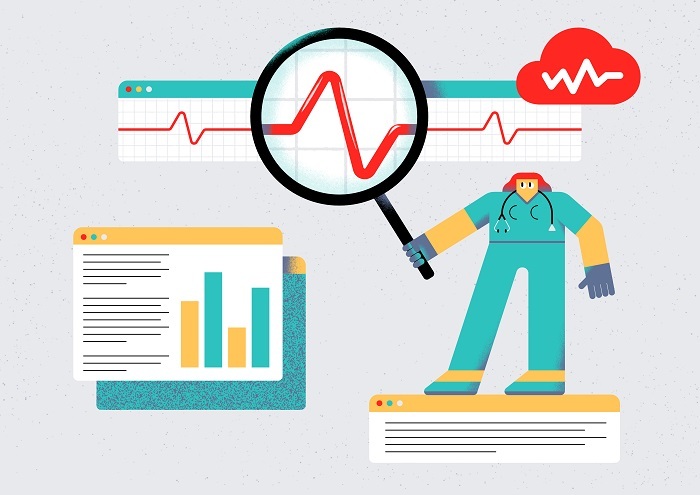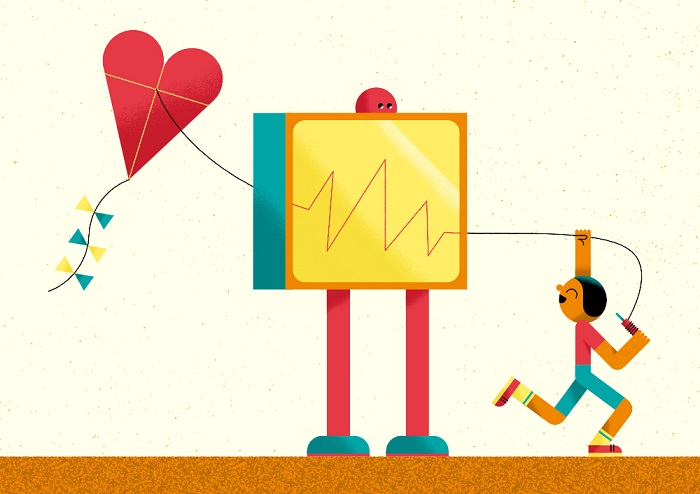Atrial fibrillation (AF) has long been treated as a binary diagnosis. A patient either has AF or doesn’t. But clinicians increasingly recognize that this all-or-nothing view oversimplifies a complex condition. The amount of AF a person experiences (their AF burden) can make a major difference in risk, symptoms, and management decisions. As the field shifts toward […]
Over the past year our product, engineering and clinical‑science teams have shipped the massive wave of improvements in Cardiomatics. Whether you log in every day or only once in a while, you’ll feel the difference immediately: smarter algorithms, snappier performance and a refreshed interface that puts more information at your fingertips. Now trusted by hundreds […]
We are thrilled to announce that Cardiomatics will be present at the ESC Congress 2025, taking place from 30 August – 2 September in Madrid, Spain. The ESC Congress is the world’s largest and most influential cardiology event. A place where science, innovation, and clinical practice come together. Discover What’s New at Cardiomatics This year, […]
Every day, clinics across Europe rely on ambulatory ECG recorders to detect arrhythmias and support clinical decisions. But with so many devices available, how can we tell which ones consistently deliver clean, usable signals? At Cardiomatics, we analyse ECG data from over 60 different devices, collected from hundreds of clinics. Because our platform is hardware-agnostic […]
Cardiovascular diseases, including arrhythmias, are a growing health concern in sub-Saharan Africa. Yet, access to advanced diagnostic tools like ambulatory rhythm monitoring remains scarce. A recent study in JACC: Clinical Electrophysiology highlights this issue and explores AI-powered solutions. The research team, including experts from UCSF, Weill Cornell Medicine, and Cardiomatics, examined arrhythmia prevalence and ways […]
With more than 30,000 participants, the ESC Congress is by far the most important gathering for the cardiology community in Europe (and beyond). Actually, I do not recommend having any serious cardiac events between August 30th and September 2nd, as everyone will be in London at that time. Cardiomatics has been a part of the […]
Cardiomatics cooperates with the BIOTRONIK sales organisation in Germany to accelerate the growth of its leading AI-powered ECG analysis solution in the German market. BIOTRONIK Sales Organisation in Germany will distribute Cardiomatics’ AI-powered ECG analysis solution in combination with its net_ECG advanced ECG-Patch Holter Monitor. The partnership will drive the adoption of AI in early detection and management for individuals who may be at risk of a cardiac event.
ECG patches and cable holter monitors are two main types of devices for long-term ECG monitoring. Patches, with their convenience and waterproof design, are dominating the market and experiencing rapid growth in usage. However, cable holters still offer specific features making them preferable for certain clinical scenarios. Find out more and discover key insights from our unique dataset comprising several hundreds of thousands of ECG recordings from a range of devices.
Introducing Cardiomatics v5: the world’s first AI-based ECG interpretation software certified under the Medical Device Regulation (MDR). With new features like AV block detection, fast-track analysis, and a revamped layout, Cardiomatics v5 empowers medical professionals with accurate and efficient ECG analysis. Join over 1,000 users and 200 clinics in experiencing streamlined workflow options and insightful reports. Request a free trial today to explore the potential of AI in ECG interpretation and enhance patient care.
Discover Cardiomatics’ latest feature: the ECG signal viewer. Now, access raw ECG signals directly within the Cardiomatics web panel, simplifying workflow for cardiologists. Responding to market demand, this enhancement offers efficiency and cost-effectiveness for medical professionals. Try it out with a free trial today.
Cameras and ECG machines share a similar trajectory of evolution from bulky, complex devices to compact, accessible tools. Just as mobile phones revolutionized photography, handheld ECG devices are becoming more ubiquitous, offering convenience and quality previously unavailable. AI and cloud technologies are poised to streamline data processing and analysis in both fields, bridging the gap between increasing data volume and limited expertise in healthcare.
Cardiomatics and the Medical University of Warsaw are collaborating to develop Cardiomatics Junior, an innovative tool for automatic assessment of ECG signals in children. By utilizing AI-based algorithms, this project aims to revolutionize paediatric cardiology diagnostics, potentially reducing analysis time to 5 minutes and improving accessibility to Holter monitor testing for young patients. Supported by the National Centre for Research and Development, this groundbreaking initiative will benefit physicians, Holter monitor manufacturers, and clinical trial implementers, ultimately enhancing diagnosis and treatment of paediatric heart conditions.


